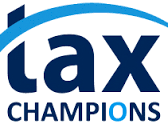Money-management expert and popular national radio personality, Dave Ramsey suggests hiring a tax professional to strategically structure your business for the most favorable tax results. “An expert can give you advice about which small business structure is best for you,” he says, “so you can keep more of your heard-earned money."
One of the many important tasks that a business owner must oversee is the structuring of their business for tax purposes. Does your business plan call for a sole proprietorship, a limited liability, or a corporation? Both, the novice and experienced business owner may find the correct answer for their business complicated.
Our many services for business include business structuring, which is also sometimes referred to as tax planning. The following is a list of the most common business structures.
Sole Proprietorship
One individual is responsible for the business. There’s no legal distinction between the individual and the business.
Partnership
One or more individuals take responsibility for the business. Partners are not employees. Partners contribute to the business and share in the profits and losses of the business, as explained by the IRS.
Corporation
The IRS says, “A corporation generally takes the same deductions as a sole proprietorship to figure its taxable income. A corporation can also take special deductions.”
Perhaps the most prominent difference between a sole proprietorship and a corporation is the separation of the business and individuals. Both parties are separate entities. Corporations often have considerably more complex tax returns than other taxpayer categories.
S Corporation
S corporations are similar to corporations. In a corporation, individual(s) take responsibility for the business. In contrast, S corporations “elect to pass corporate income, losses, deductions, and credits through to their shareholders for federal tax purposes,” says the IRS.
This strategy allows corporations to avoid double taxation, which can occur with corporations. If the business services you hire include tax planning, ask about the pros and cons of corporations and s corporations for your business.
Limited Liability Corporation (LLC)
An LLC is similar in many ways to a sole proprietorship, partnership and corporation. In contrast to these structures, however, the owner(s) of an LLC aren’t vulnerable to risks, such as lawsuits and business debts.
Correct business structuring is vital to the success of your business. Experts like Dave Ramsey and many more recommend hiring help for your business when making these important decisions.

